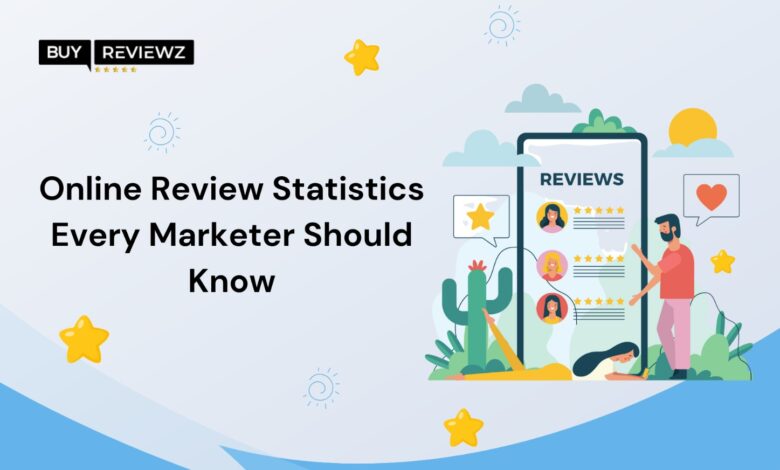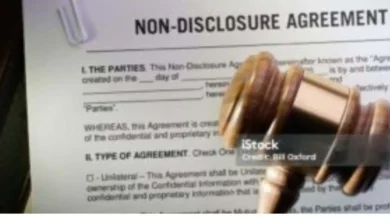18 Online Review Statistics Every Marketer Should Know

Online reviews are incredibly strong and almost inescapable when running any business. 1% increase in review volume leads to a 0.5% increase in sales of a business.
Whether you own or manage a small shop and save restaurant, a computer software corporation, or a network of coffee shops, your consumers will most certainly look you up online.
This collection of online review statistics in the blog below, will help you realize how valuable the appropriate comments can be. Also buy Google reviews to increase your online presence and gain trust among new audiences.
18 Online Review Statistics Every Marketer Should Know
Online reviews have a big impact on what customers buy, foster confidence, and propel company expansion. To remain competitive, marketers need to give review management a priority.
Here are 18 online review statistics every marketer should know-
- Positive & Negative Reviews Influence Consumers
More than 99.9% of buyers check the reviews before shopping online. 96% of buyers are specifically looking for bad reviews.
Customers are showing good judgment and taking well-informed decisions before purchasing in ecommerce stores. They value transparency and are interested in learning about the potential disadvantages of a product or service.
- Customers Believe Reviews Like Advice From Close Friends
Online reviews are regarded by 49% of consumers as trustworthy as word-of-mouth referrals from friends and family.
As it influences consumer decisions, businesses should strongly emphasize keeping a favorable online reputation.
- The More Reviews, The Better Reputation
When choosing whether or not to use a business’s services, 60% of consumers think that the number of reviews the company has is important.
It’s all about quantity. An increased quantity of reviews may be interpreted as evidence of a company’s legitimacy and appeal.
- Most Consumers Don’t Trust Advertising
Millennials, at 84%, have little faith in traditional advertising. Direct advertising is encountering increasing resistance from today’s consumers. Peer evaluations, authenticity, and openness are beginning to hold more sway than conventional advertisements.
- Consumers Look Up Product Reviews With Their Phones Outside The Store
8 out of 10 consumers research product reviews on their cellphones while they’re in the store.
The distinctions between in-store and virtual shopping are becoming less clear. Companies need to make sure they are present in both spaces in a consistent and favorable way.
- Reviews Shared On Social Media Platform Increase Social Commerce
Conversion rates increase by 5.3 times on LinkedIn, 8.4 times on Twitter, and 40 times on Facebook when reviews on social media platforms are shared.
Social media works well for both increasing brand recognition and driving sales. Incorporating reviews into social media campaigns helps boost conversion rates.
- The Lowest Rating That Customers Will Take Is 3.3 Stars
A minimum of 3.3 stars out of 5 is considered acceptable by customers for businesses.
In today’s competitive market, even a seemingly respectable rating of 3 stars could not be sufficient. It is imperative to respond to feedback and make continuous improvements.
- In Travel Reviews, Sustainability Is A Recurring Theme
Travelers today are growing more environmentally conscientious. In order to attract this expanding group, the tourism sector should place a high priority on sustainable practices.
Travel reviews often contain terms like “recycling,” “LED light bulbs,” and “renewable energy.”
- 18 To 34-Year-Olds Place Equal Trust In Online Reviews And Personal Suggestions
According to 91% of adults in the 18–34 age group, online reviews are just as credible as word-of-mouth recommendations.
Being digital natives, the younger generations have a great deal of faith in online networks. Online reviews have a big influence on their shopping decisions.
- Reputation Management Software Pays For Itself
Reputation management technologies yield a 94% return on investment for local enterprises.
Putting money into your online reputation is a calculated decision that can pay off handsomely in the long run.
- Consumers Think A Product Ought To Have More Than 100 Reviews
43% of consumers would rather purchase goods with more than 100 reviews. Numerous evaluations can have a significant impact on a buyer’s decision to buy, which emphasizes the need of encouraging customers to leave feedback.
- Travelers Never Post Unsolicited Online Hotel Reviews
78% of travelers never leave uninvited internet reviews for hotels.
Companies in the hotel industry should be aggressive in asking for evaluations because the majority of visitors won’t do so until they are asked to.
- Customers Are Growing More Doubly Concerned About Facebook Reviews
Fake reviews on Facebook are a concern for 93% of consumers. For platforms and companies to continue earning the trust of customers, reviews must be genuine.
- Most Consumers Use Rating Filters
Rating filters are used by 7 out of 10 customers while looking for businesses.
Customers are highlighting the value of maintaining a good rating and expediting their search experience by concentrating on highly-rated businesses.
- Consumers Anticipate A 7-Day Response From Business To Negative Reviews
Customers want businesses to reply to bad reviews within a week, according to 53% of consumers.
Responding to unfavorable reviews promptly and sympathetically can lessen the harm and demonstrate a company’s dedication to client pleasure.
- How You Respond To A Review Can Affect How Clients See Your Business
56% of customers alter their opinion of a company as a result of the way the company handles a review.
Responding to unfavorable reviews promptly and sympathetically can lessen the harm and demonstrate a company’s dedication to client pleasure.
- Customers Use Google To Learn About Customers
According to 63% of consumers, they look up reviews of businesses using Google search engines. An additional 54% of people use Facebook, and 32% use Yelp.
- Consumers Would Pay More To Support A Company With Good Reviews
58% of customers said they would go above and beyond to do business with organizations that received high reviews, or they would pay more for a service that did.
When looking for local businesses online, 41% of Americans think that reviews are one of the most crucial factors to take into account.
Conclusion
These statistics on online reviews demonstrate how people worldwide rely on comments and reviews from online sources when making judgments about what to buy.
Conversions are more likely to occur if you have more reviews and they seem to be more recent and pertinent.
Consider collaborating with BuyReviewz, a reputed platform that assists companies in managing and generating real reviews, to further strengthen your online review strategy.




